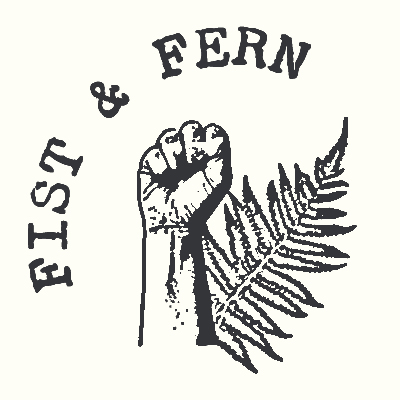About Mutual Aid
"Mutual aid is the radical act of caring for each other while working to change the world."
Dean Spade (2020) in Mutual Aid: Building Solidarity During This Crisis (and the Next)
Mutual Aid is a term that was popularized by the Russian anarchist Peter Kropotkin, particularly through his well-known collection of essays of 1902 called "Mutual Aid: A Factor of Evolution". He wrote it in reaction to social Darwinists who fixated on the importance of "the struggle for existence" or "survival of the fittest", i.e. competition for resources between individuals, as a force of evolution, even though Darwin himself recognized that this was a misleading oversimplification. Social Darwinists thought that life's purpose is to aggressively compete for resources and for mates in order to procreate, and that those successful in hoarding resources represent higher stages of human evolution. This wildly misrepresents the theory of evolution, but it has been a widely used justification for violent greed at the expense of others. Through an elaborate review of animal and human behavior, Kropotkin demonstrated that solidarity between individuals of a species is an immensely important factor for enhancing chances for survival and the quality of life more broadly.
In our current capitalist societies, we are strongly conditioned to be individualistic and expect social services to be centrally organized by the state. However, when disasters strike and governments fail to provide swift and adequate help, people quickly shift to take charge themselves, immediately creating logistical networks for helping each other. This is when it becomes crystal clear how instinctive practicing mutual aid actually is, and how we have gotten out of shape, but can rather easily pick it back up again. Common examples of mutual aid include these types of community-led crisis responses, as well as community gardens, child care collectives, and free stores. Mutual aid is generally discouraged by the state as it undermines its power, it means the state loses control over a situation. So it becomes obvious that mutual aid is also a form of direct action - practicing solidarity between human beings instead of relying on social services organized by the government. And in this way, mutual aid also works to change the world, to reduce dependence on an authoritarian entity and to work towards more egalitarian social organization through solidarity.
It is crucial to distinguish mutual aid from charity. Most importantly, charity is part of the capitalist system and reinforces this system, while mutual aid works to undermine it. Charity is top-down, unidirectional, and often conditional, while mutual aid aims to be egalitarian, reciprocal, and participatory, based on self-organization and self-governance. There are quite a few discussions online about the term mutual aid being diluted and too easily applied to people providing goods and services to other people in need, practices that are considered to be unidirectional and fail to challenge the structures that create the situation of need in the first place. While it's important to avoid supporting structures of power when you are really aiming to challenge them, I would caution against taking the term "mutual" too literally by assuming that it can only be mutual aid if the other person is able to reciprocate something of similar value. This goes against the unconditional nature of mutual aid that refuses to keep score, recognizing that helping each other can come in many many different forms that cannot always be recognized or quantified.
I think that there is actually a simple way to determine whether something is mutual aid, namely through this well-known quote:
“If you have come here to help me you are wasting your time, but if you have come because your liberation is bound up with mine, then let us work together.”
Aboriginal activist group, Queensland, 1970s.
Mutual aid in activist communities
Examples of mutual aid often focus on local communities, but this doesn't have to be the case. There can be mutual aid within communities where members are physically dispersed but connected through shared identity, experiences, and/or values. An example could be an online forum for people suffering from a particular disease, where they share knowledge and experiences on medical, psychological, and social aspects.
For the purpose of Fist & Fern, I will consider national and international networks of activists fighting for a sustainable and just world as a community. In this community, we help each other in various ways: by sharing information, skills, and experiences; by supporting each other's actions on social media; by taking on various key roles during actions that aim to protect the participants; by providing arrestee and court support for activists arrested and/or taken to court; and by providing financial support for activists in need.
As I mentioned on the page Why To Resist, quite many people consider activism to be something rather negative - activists are seen to fight against rather than for something, activists are considered loud and disruptive. However, these people generally have no idea what goes on in activist communities behind the scenes. Not only are there lots and lots of meetings to strategize, to train, and/or to socialize, there are structures, values, and shared practices to guide the ways we collaborate. Activism isn't just disruptive resistance, it involves community building and practicing what we preach as much as possible.
While I am personally involved in the activist community in various ways, through Fist & Fern, I primarily aim to provide financial support for activist mutual aid causes. Let's check out some of these causes on Support the Resistance.


